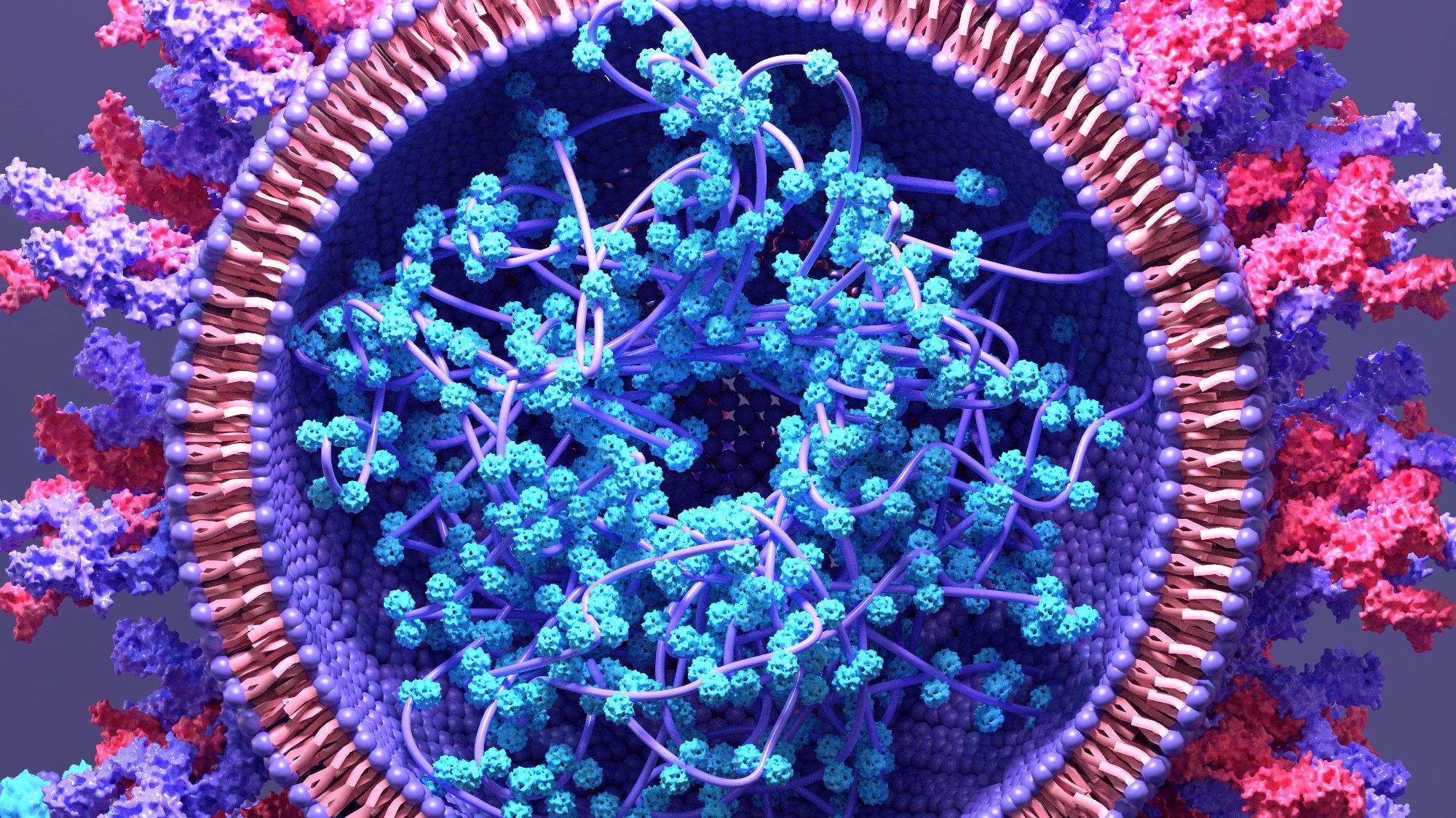The emergence of the highly pathogenic coronavirus disease 2019 (COVID-19), caused by the severe acute respiratory syndrome coronavirus 2 (SARS-CoV-2), has been an enormous concern and threat to public health the last couple of years.
The continuous emergence of variants has made it difficult to contain the pandemic. The Delta variant is currently the dominant and virulent SARS-CoV-2 variant of concern (VOC).
In a new study published on the bioRxiv* preprint server, scientists investigated several virological features of the Delta spike protein.
Some of the features studied were protein maturation and its impact on viral entry of cell-free pseudotyped virus, cell-cell fusion ability, and cytokine production in human macrophages and dendritic cells.

The Delta Variant
This VOC was first detected in India and derived from the Pango lineage B.1.617.2. It has accounted for approximately 99% of new cases of coronavirus worldwide.
Research has shown that the Delta variant has a shorter incubation period but a more significant viral load than earlier variants. The patients contracting Delta have higher chances of being hospitalized and experiencing more severe clinical outcomes, and current vaccines only provide partial protection against this variant.
It is imperative to understand the molecular mechanisms of the increased transmissibility and immune evasion of novel VOCs to aid in developing vaccines and therapeutics to combat the pandemic. The study under consideration characterizes the cleavage/maturation of various spike proteins (SPs) of SARS-CoV-2, especially the Delta variant SP (SPΔCDelta).
Key Findings
Researchers used a SARS-CoV-2 SP pseudotyped lentiviral vector or viral-like particles (PVLPs) to show that the Delta variant SP enhanced S1/S2 cleavage, accelerated pseudovirus infection, and promoted cell-cell fusion.
The study demonstrated that SPΔCDelta was highly efficient in processing the precursor S into S1 and S2 compared to the SP of other strains (including the original Wuhan strain).
An amino acid proline (P681), among the mutations in the Delta variant SP, at the N-terminus of the polybasic cleavage site (RRAR) changed to arginine (P681R), which is highly important, as it is part of a proteolytic cleavage site for furin and furin-like proteases.
Scientists reverted the arginine of 681 and asparagine (N) of 950 back to the original proline (P) and aspartic acid (D) and found that the cleavage of the SPΔCDelta was comparable to the spike proteins of other variants.
Researchers observed that SPΔCDelta augmented cell-free pseudovirus infection in A549ACE2+ and Calu-3 cell lines and macrophages. This clearly indicated SPΔCDelta to be an important factor contributing to the increased infectiousness of the Delta variant.
It was also observed that the infection caused by the SPΔCDelta-pseudovirus was marginally higher than that caused by SPΔCG614-pseudovirus, indicating that the G614 mutation may be one of the main driving forces for the increased infectivity of the Delta variant.
Spike protein expressed at the surface of infected cells is enough to generate fusion with neighboring cells.
In the current study, scientists showed that the syncytia formation was significantly enhanced when SPΔCDelta-expressing 293T or A549 cells were cocultured with A549ACE2 cells.
This observation suggested that since cell-to-cell fusion may provide another efficient method of viral dispersal in the host, it explained the stronger transmission of the Delta variant among the population.
In the study, scientists did not investigate the impact of TMPRSS2 on the cell-cell fusion process. Future research in this area should provide a clearer understanding of Delta variants' persistence, dissemination, and immune or inflammatory responses.
The severity of the disease is highly related to dysregulated and excessive release of proinflammatory cytokines. Researchers tested whether macrophages or dendritic cells acted as significant modulators of the immune response.
To this end, large amounts of cytokines and chemokines were produced, to recruit immune cells and presented with antigens. The results showed that NFκB and AP1 signaling pathway activities were augmented by the Delta variant SP, compared with the original Wuhan strain.
This suggests that SPΔCDelta might promote the inflammatory status of these cells. Similarly, the spike protein of SARS-CoV-1 was discovered to activate NF-κB and stimulate the release of IL-6 and TNF-α.
It was also observed that SPΔCDelta significantly enhanced the expression of several proinflammatory cytokines, such as TNF-α, 357 IL-1β, and IL-6.
Conclusion
The current study showed that the spike protein of the SARS-CoV-2 Delta variant exhibited high cleavage and maturation. These features could play an essential role in viral infection and cell-cell transmission.
Scientists also observed that SPDelta had substantial effects on stimulating NF-κB and AP-1 signaling in monocytes and the release of proinflammatory cytokines from human macrophages and dendritic cells.
These findings lend strong support to the vital role of the spike protein of the Delta variant during viral infection, transmission and pathogenesis.
*Important Notice
bioRxiv publishes preliminary scientific reports that are not peer-reviewed and, therefore, should not be regarded as conclusive, guide clinical practice/health-related behavior, or treated as established information.
- Ao, Z. et al. (2021) SARS-CoV-2 Delta Spike Protein Enhances the Viral Fusogenicity and Inflammatory Cytokine Production, bioRxiv, 2021.11.23.469765; doi: https://doi.org/10.1101/2021.11.23.469765, https://www.biorxiv.org/content/10.1101/2021.11.23.469765v1
Posted in: Medical Research News | Disease/Infection News
Tags: Amino Acid, Arginine, Asparagine, Aspartic Acid, Cell, Chemokines, Coronavirus, Coronavirus Disease COVID-19, Cytokine, Cytokines, Immune Response, Mutation, Pandemic, Proline, Protein, Pseudovirus, Public Health, Research, Respiratory, SARS, SARS-CoV-2, Severe Acute Respiratory, Severe Acute Respiratory Syndrome, Signaling Pathway, Spike Protein, Syndrome, Therapeutics, Virus

Written by
Dr. Priyom Bose
Priyom holds a Ph.D. in Plant Biology and Biotechnology from the University of Madras, India. She is an active researcher and an experienced science writer. Priyom has also co-authored several original research articles that have been published in reputed peer-reviewed journals. She is also an avid reader and an amateur photographer.
Source: Read Full Article
